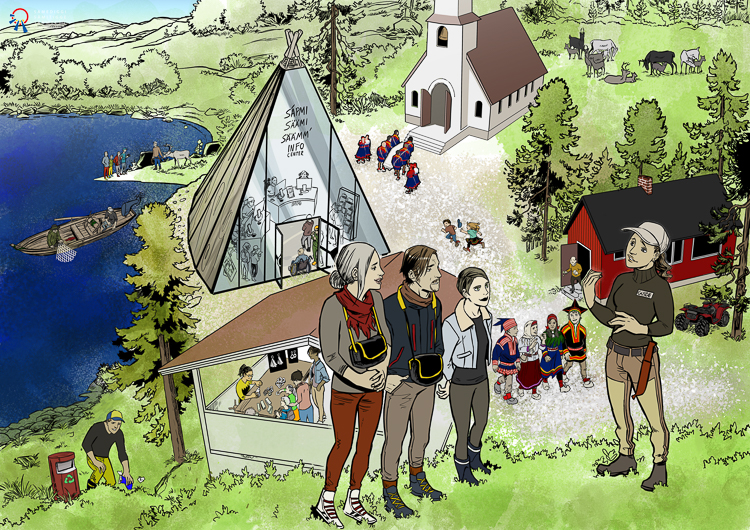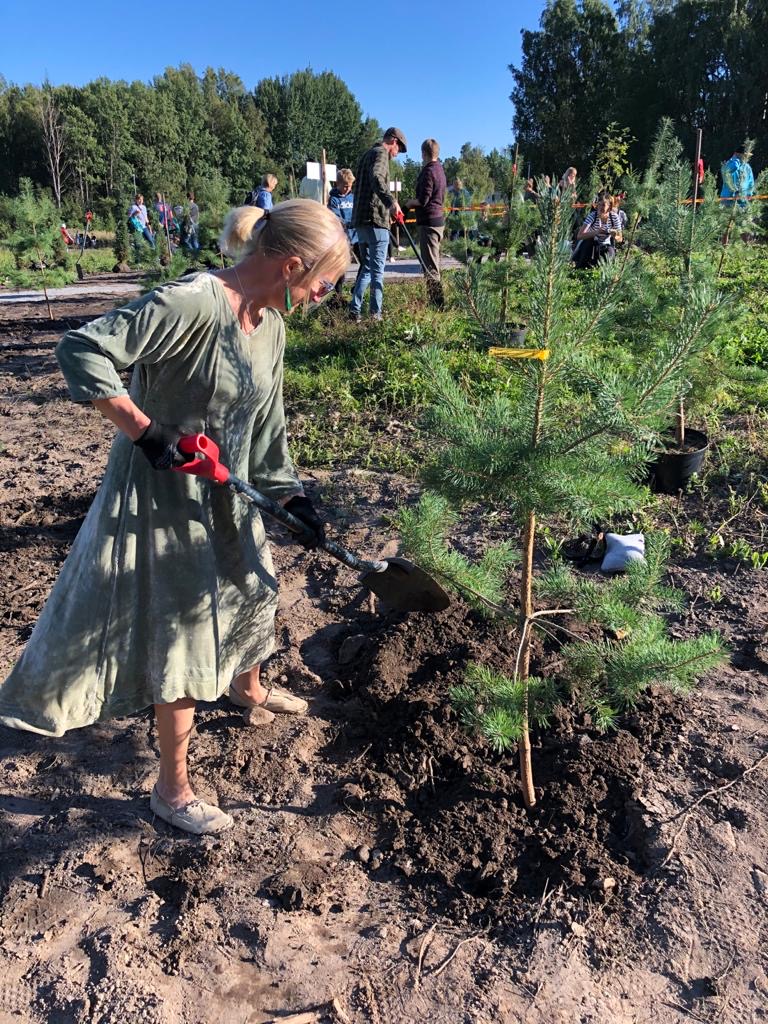text: Vilhelmiina Vainikka
Fourth ETRAC webinar was organized on 24.5. and the theme was “How to sell ethical tourism?”. Four inspiring speakers gave their contributions to this question from their own points of view. If you wish to see the presentations, follow the links in the text.
Minna Murtonen, co-founder and -owner of Äksyt Ämmät Oy (Finland, travel agency and guest house) introduced us to their practices towards more ethical and sustainable tourism through certificates, memberships and compensations, but also beyond. Äksyt Ämmät has for example the German TourCert-cerficate (Social corporate responsibility) for their main market but also Sustainable Travel Finland- certificate to show their commitment to ethical tourism. Their membership among others to responsibletoravel.com marks the communal character of tourism stakeholders interested in the ethical dimensions of tourism. And as for compensations, Minna says they compensate the flights at least for their business tours. “Know your partners” is one aspect of selling ethical tourism. Minna sees that collaboration with other local entrepreneurs and other tourism companies is important. Also the respect for landowners is essential. The guesthouse to guesthouse skiing tour is a good example of all this. Another way to support local community is to offer the facilities for their use with reasonable price. Minna thinks that ethical education for tourists is very much needed. See Minna’s presentation here.

Guest house Pihjalajapuu. Photo: Äksyt Ämmät oy
Kirsi Suomi, a coordinator in Responsible Sámi Tourism -project from the Sámi Parliament in Finland enlightened us on the Responsible Visitor’s Guide to World of Sámi Culture and Sámi Homeland in Finland that has been just published, and therefore continued discussing the idea of ethical education in relation to selling ethical tourism. This guide is a website with eye-catching pieces of art showcasing do’s and don’ts in visiting Sámi Homeland. The art is created by comic artist Sunna Kitti. The digital form of the guide makes it possible to update it and react to changing conditions in tourism. The guide aims to encourage the visitors to behave responsibly during their trips and to respect the living cultural landscape and all its living beings. Visitor of the website can also test their knowledge by taking a quiz. Domestic privacy is one of the important aspects for the local people as well as not to objectify them by, for example, taking photos of them in their traditional dress without permission: “There is a person inside the dress, not an object”. The underlying idea in the guide is the ethical sustainability that is holistic covering social, cultural, ecological and economic dimensions of sustainability and carrying capacities. See Kirsi’s presentation here.

Good future illustration by Sunna Kitti Figure: the Sámi Parliament
Maria Saastamoinen, a co-founder and -owner of Lietsu Boutique Aparthotel (Finland) introduced an idea of emotional value of Karelian hospitality and what kind of role it has on their sales. She describes Karelian people as talkative, joyful and open, that are characteristics they wish to make their clients feel: to be welcoming. Also Lietsu collaborates with lots of local businesses in order to support the community and ensure the sense of Karelian hospitality for their clients. Maria says that they had five objectives for their business: “1. to create human-sized experiences of locality and hospitality. 2. to increase the appreciation to Karelian culture and history 3. to emphasize the values of nature and climate 4. to increase the understanding of diversity and create empathy 5. to support the local economy and to create a sense of community.” Alongside the services, they also use for example certificates and labels as strategic tools in their practices to create emotional value. These are the facts and processes behind the emotions and values. The selling points of Karelian hospitality are to feel it yourself, to recognize the potential clients, honest communication, continuous development and co-creation, leave room to surprises, let others contribute and keep your promises. See Maria’s presentation here.
Anu Nylund is an entrepreneur of Mood of Finland and she brought to our attention the regenerative tourism and its possibilities. For Anu, regeneration is a process of learning and sharing. It is a way of thinking and understanding how to act for a better future. In her mission, learning together with other experts is central. Regenerative tourism is about doing together and producing wellbeing not only for us but also for others, including nature. Shepherd’s holiday in Finnish Lapland was one case she introduced and with that product concept a possibility is created for people living in small villages to have income by visitors taking care of the sheep and cows. Connecting people to the nature is the idea behind this concept. Love Forest Finland was another concept introduced: visitors plant trees and dedicate it to someone or something and also contribute to nature conservation with donating 10€ per planted tree. Aim is to create a community around these values. See Anu’s presentation here.

Anu at Bosque del Amor Photo: Mood of Finland oy
Ideas of collaboration, doing good for others and respect are central for selling ethical tourism and they are visible in the presentations. These go beyond just selling and following the numbers.
